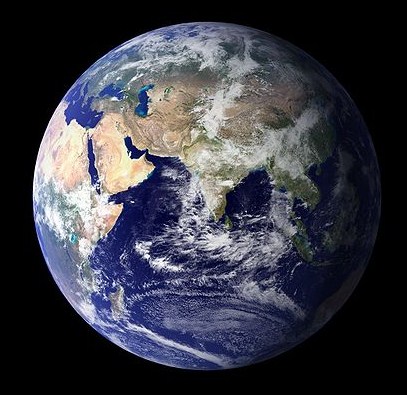FIFA Adopts Sustainable Culture: Russia 2018
FIFA’s official environmental programme is Football for the Planet, whose objective is to decrease the negative impact on the environment because of various activities. Since the FIFA World Cup started in Germany in 2006, there have been some environmental programmes developed for FIFA competitions and this one is the continuation of those programmes.

FIFA had also launched a free campaign that boosts the strong World Cup ticket candidates to account for the emitted carbon that has resulted from their travel to this tournament. This is also a step towards reducing the 2018 environmental impact of Russia and also an awareness raiser of climate change.
FIFA and the 2014 FIFA World Cup Local Organising Committee (LOC) in Brazil has executed a project which aims at reducing the influence on the environment of 2014 FIFA World Cup Brazil™. The activities performed in this regard are as under:
One of the most alarming issues of the time is Global Warming. The vast change in temperature due to the Carbon Dioxide released into the atmosphere through various human activities is a big issue. It is estimated by FIFA and the LOC that the total carbon footprint would be 2.7m tonnes of the 2014 FIFA World Cup Brazil™, out of which only 251,000 tonnes of CO2 were under operational control. Moreover, all these emissions are carefully accounted for carbon-reduction projects in Brazil under the FIFA and LOC operational control
All these gases emissions are because of travel and accommodation of all officials, staff, teams, guests, volunteers, and also include the stadiums, offices, and venues emissions. Besides this, FIFA invited ticket applicants to balance the emissions coming from the travel to the tournament for free irrespective of the fact that from where they belong from.
The FIFA World Cup stadiums have planned to achieve LEED certification in Brazil for all the installed roof solar panels and green buildings to form renewable energy. 6-day training was organised by FIFA and the LOC, and that was a type of training course for all 12 stadium operators on sustainable stadium management.
To make sufficient control of the handling and destination of waste is the aim of a new waste law in Brazil. FIFA and the LOC, and Coca-Cola in collaboration with the local waste cooperatives have initiated a waste management system that ensures that the waste is properly recycled and handled whenever necessary. With the 2014 FIFA World Cup™ mascot Fuleco’s promotional appeal, there were proper instructions given to spectators about how to discard waste and what to do with it.
Proper work has started towards lower-carbon 2018 FIFA World Cup in Russia, which is a collaborative initiative of FIFA and the local organisers. In this, various steps are taken to reduce the emissions under the operational control.
The following measures have been adopted for the 2018 games in Russia:
- In each stadium and for all matches, FIFA offers a dedicated allocation of tickets for purchase by disabled people and people with limited mobility. These “Special Access Tickets” are available in four categories, namely (1) Wheelchair User, (2) Easy Access Standard, (3) Easy Access Amenity, and (4) Obese Person. All Special Access Ticket holders (except obese people) will be offered a complimentary ticket for a companion to assist them before, during and after the match.
- The 2018 FIFA World Cup will be tobacco-free events. FIFA has participated in the international movement against
tobacco since 1986, with the first tobacco-free FIFA World Cup being held in 2002. - According to FIFA World Cup stadium requirements, all official stadiums for the 2018 cup have to obtain green-building certification for design and construction.
- FIFA has committed to measuring, reducing and offsetting all of its greenhouse gas emissions related to the 2018 FIFA World Cup. FIFA teamed up with the South Pole Group and their carbon management experts to estimate the carbon footprint of the 2018 FIFA World Cup.
- Waste recycling and reuse: Around 20 per cent of the total waste collected during the Preliminary Draw for the 2018 FIFA World Cup Russia™ was dispatched for recycling. This number is one of the results achieved following the implementation of a system put in place by the Local Organising Committee (LOC) to manage and recycle waste at the main event sites between 13 and 26 July.
Even, you people can help in this initiative of reducing the impact of the 2018 World Cup, all you have to do is opt for public transport. Moreover, you can use the public transport services for free by just showing the Fan-ID and Ticket. These services are free of cost to and from the stadiums within the host cities. When traveling from one host city to another, you can also have free train services.



Very nice article . However i wonder most of the information provided id=s for the previous years. What were the steps taken in this World cup 2018. Could you please throw some light on this?
Thank you for your comment. The article has been suitably updated to reflect the measures adopted for the 2018 event.